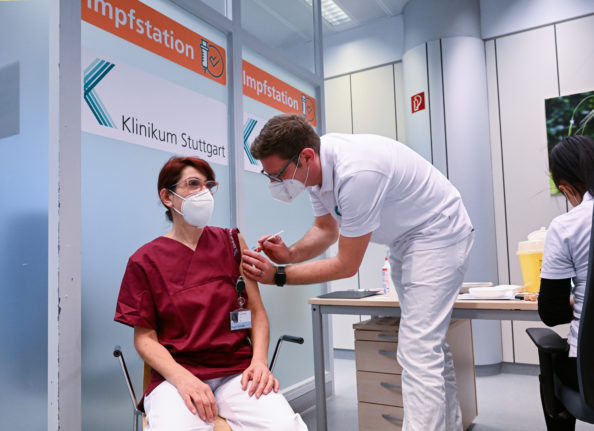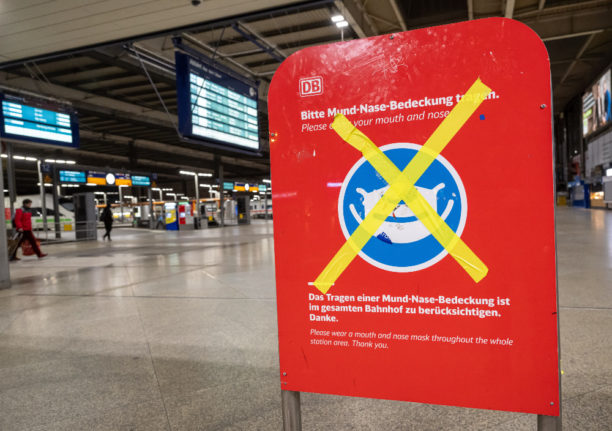From mid-March this year, health and care workers in Germany have had to prove they are vaccinated against Covid-19 or recently recovered.
If they can’t provide this proof they face fines or even bans from working – however it is unclear how widely it has been enforced due to concerns over staff shortages.
On Thursday the constitutional court rejected complaints against the partial vaccination mandate, saying the protection of vulnerable people outweighs any infringement of employees’ rights.
The law covers employees in hospitals as well as care homes, clinics, emergency services, doctors’ surgeries and facilities for people with disabilities.
READ ALSO: What you need to know about Germany’s Covid vaccine mandate for health staff
The court acknowledged that the law meant employees who don’t want to be vaccinated would have to deal with professional consequences or change their job – or even profession.
However, the obligation to be vaccinated against Covid as a health or care worker is constitutionally justified and proportionate, according to the judges.
They said that’s because compulsory vaccination in this case is about protecting elderly and sick people. These groups are at increased risk of becoming infected by Covid-19 and are more likely to become seriously ill or die.
The protection of vulnerable groups is of “paramount importance”, the resolution states.
Health Minister Karl Lauterbach welcomed Thursday’s ruling and thanked health care facilities who have already implemented the vaccine mandate. He said: “The state is obliged to protect vulnerable groups”.
Danke! https://t.co/lBbnjXJCR7
— Prof. Karl Lauterbach (@Karl_Lauterbach) May 19, 2022
Course of the pandemic doesn’t change things
According to the ruling, the development of the pandemic in Germany is no reason to change course.
The court based its decision on the assessment of the Robert Koch Institute (RKI) and medical societies, stating that it could still be assumed that a vaccination would protect against the Omicron variant.
It’s true that the protection of vaccines decreases over time, and most courses of disease are milder with the Omicron variant. Nevertheless, the institution-based vaccination obligation remains constitutional because, according to the experts, the higher risk for old and sick people has not fundamentally changed.
A vaccine mandate that would have affected more of the population in Germany was rejected by the Bundestag in a vote held in April.
MPs had been allowed to vote with their conscience on the issue rather than having to vote along party lines.



 Please whitelist us to continue reading.
Please whitelist us to continue reading.
Member comments